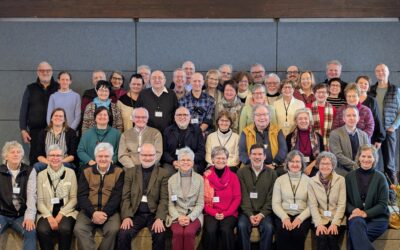If you are a believer you have a task to fulfill in relationship to others, toward those who do not know God.
Christians, in fact, cannot shun the world, hide from it, or regard religion as a private matter. Rather Christians must live in the world because of a responsibility, a mission before al people: that of being the light that shines.
You, too, are given this task, and if you do not fulfill it, you will be like salt that has lost its flavor or light that has gone out in the darkness, no longer useful.
«In the same way your light must shine before people, so that they will see the good things you do and give praise to your Father in heaven.»
This light is made visible through “good works.” It shines through the good works of Christians.
You may say: “But not only Christians do good works. There are others who work toward progress, who promote social justice…”
You are right. But while Christians also do and must do these things, their specific task is not this alone. Christians must do good works with a new spirit, that spirit by which it is no longer they who live, but Christ who lives in them.
St. Matthew does not, in fact, refer only to isolated works of charity (such as visiting prisoners, clothing the naked, or any of the other works of mercy dictated by the needs of today) but to the Christians’ complete adherence to the will of God in such a way that his or her whole life becomes a “good work.”
If Christians act this way, then the praise for what they do will not be addressed to their persons but to Christ in them. Thus, through them, God will be present in the world. This, then, is the task of Christians: to let the light that is in them shine through, and to be the “sign” of this presence of God among his people.
«In the same way your light must shine before people, so that they will see the good things you do and give praise to your Father in heaven.»
If this is the characteristic of one believer’s good works, then the Christian community in the midst of the world must also have the same specific function: to reveal by its life, the presence of God that manifests itself wherever two or more are united in his name, and whose presence has been promised to his Church until the very end of time.
The early Church gave great importance to these words of Jesus. Especially in difficult times when Christians were subjected to slander, they were urged to refrain from violence. Their behavior was to be the best refutation of the lies spoken against them.
In St. Paul’s second letter to Titus we read: “Urge the young men to be self-controlled. You yourself, in all things, must be an example in good works. Be sincere and serious in your teaching. Use sound words that cannot be criticized, so that your enemies may be put to shame by not having anything bad to say about us” Ttitus 2:6-8).
«In the same way your light must shine before people, so that they will see the good things you do and give praise to your Father in heaven.»
Also today, the light which leads people to God is the Christian life lived well.
I’ll tell you a story.
Antoinette was an Italian girl who, because of her work, moved to France. She had a job in an office where many of the other employees didn’t take their work very seriously. Being a Christian she therefore tried to treat each person as she would Jesus. She helped everybody and was always calm and smiling. Often someone would get angry and shout at her, or make fun of her attitude, saying: “Since you like to work so much, you can do my typing too.”
Antoinette would remain silent and do the work. She knew that they weren’t really mean at heart, that they probably had their troubles.
One day the office manager came to talk to her while the others were away. “Now you must tell me how you manage never to lose your patience and to smile all the time.” She answered, a little embarrassed, “Well, I just try to keep calm, and to look for the positive side to everything.”
The manager banged his fist on the desk saying, “No, God must have something to do with it, I’m sure! Otherwise it would be impossible. And to think that I didn’t believe in God!”
A few days later Antoinette was called to the manager’s office. He told her he wanted to transfer her to another department, so that she could “transform ” it in the same way that she had transformed the present office.
“In the same way your light must shine before people, so that they will see the good things you do and give praise to your Father in heaven.”
Chiara Lubich




0 Comments